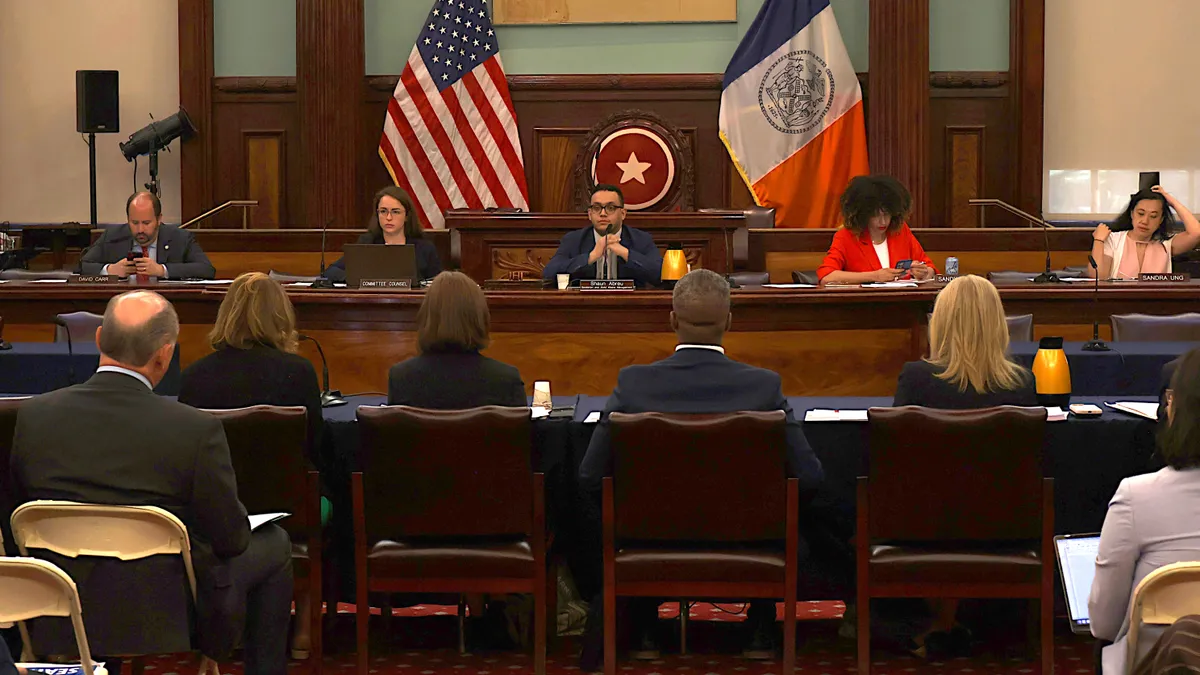A recent proposal in New York City could give workers paid time off to care for their pets. The measure, introduced Oct. 23 by Democratic Councilman Shaun Abreu, would expand the city’s existing Earned Safe and Sick Time Act to allow workers to use sick time for pet-related medical care, including preventive care and diagnosing and treating an illness or injury.
Melissa Camire, partner in law firm Fisher Phillips’ New York City office, said the proposed measure isn’t as “extreme” as headlines may make it seem.
Under the city’s existing sick leave law, companies with more than 100 employees have to provide workers with up to 56 hours of sick leave per year, while smaller workplaces are required to offer up to 40 hours per year.
“It’s not like it’s creating a new bank of additional days; it just gives employees an additional reason that they can use that sick leave,” Camire told HR Dive. “For employees who view their pets as members of their family, I think it makes perfect sense from their perspective.”
Camire said employees at many companies can already likely use personal time off to care for pets, even if it’s not specifically regulated. But not everyone has PTO and, in passing legislation, such use of sick time becomes protected, she explained.
The bill was referred to committee by council and would go into effect 120 days after becoming law.
The proposal reflects a broader push for more flexible benefits, Carmine said. Some companies already provide workers with “pawternity” leave to bond with a new pet or pet bereavement leave to mourn. And others have pet-friendly policies such as pet insurance or allow dogs in the office.
“New York does tend to be a little bit of a trendsetter when it comes to employment laws. Do I think that this is going to be a tipping point that every state or city is going to consider doing something similar? No,” Carmine said. “Will we potentially see other municipalities or cities that tend to be more at the forefront of these issues, like New York, join the trend? I think that’s more likely.”
Instead, the proposal “opens up a larger conversation about employee benefits and flexible workplaces,” and the types of benefits and support employees are looking for, she said.
Molly Johnson-Jones, CEO and co-founder of Flexa, a global job platform focusing on flexible workplaces, said that while legislation like that proposed in New York City could be beneficial to some workers, “U.S.-based employees have other more pressing needs when it comes to formal policies and legislation,” such as better paid parental leave and paid vacation days.
“The needs of employees more widely can often be accommodated simply by giving teams more autonomy. Staff should feel trusted and empowered to fit work around caring for their sick pet on occasion, for example. Not every aspect of working lives needs to be regulated. Otherwise we risk dismantling that trust and distracting from more urgent issues,” Johnson-Jones said in an emailed statement to HR Dive.













